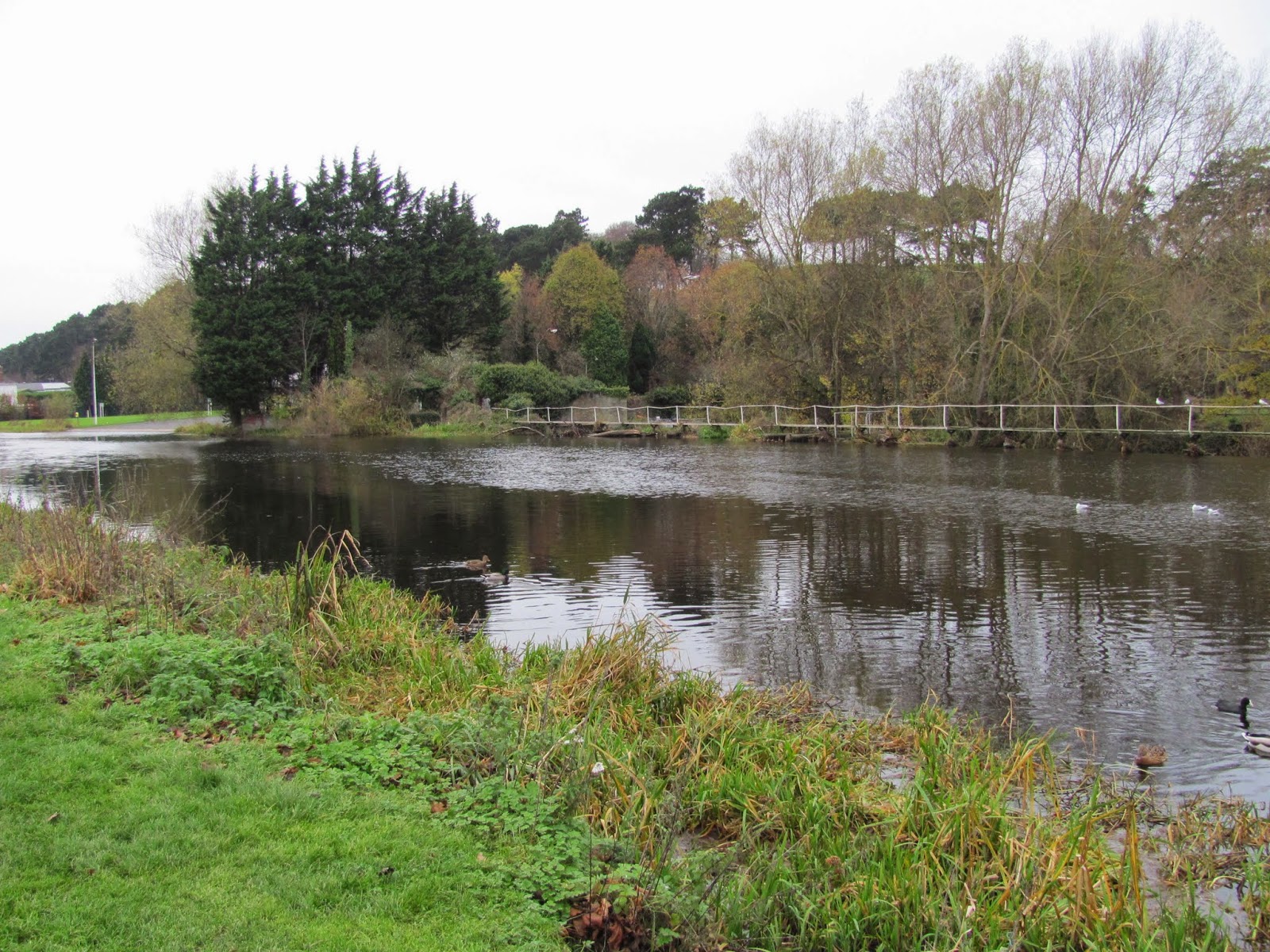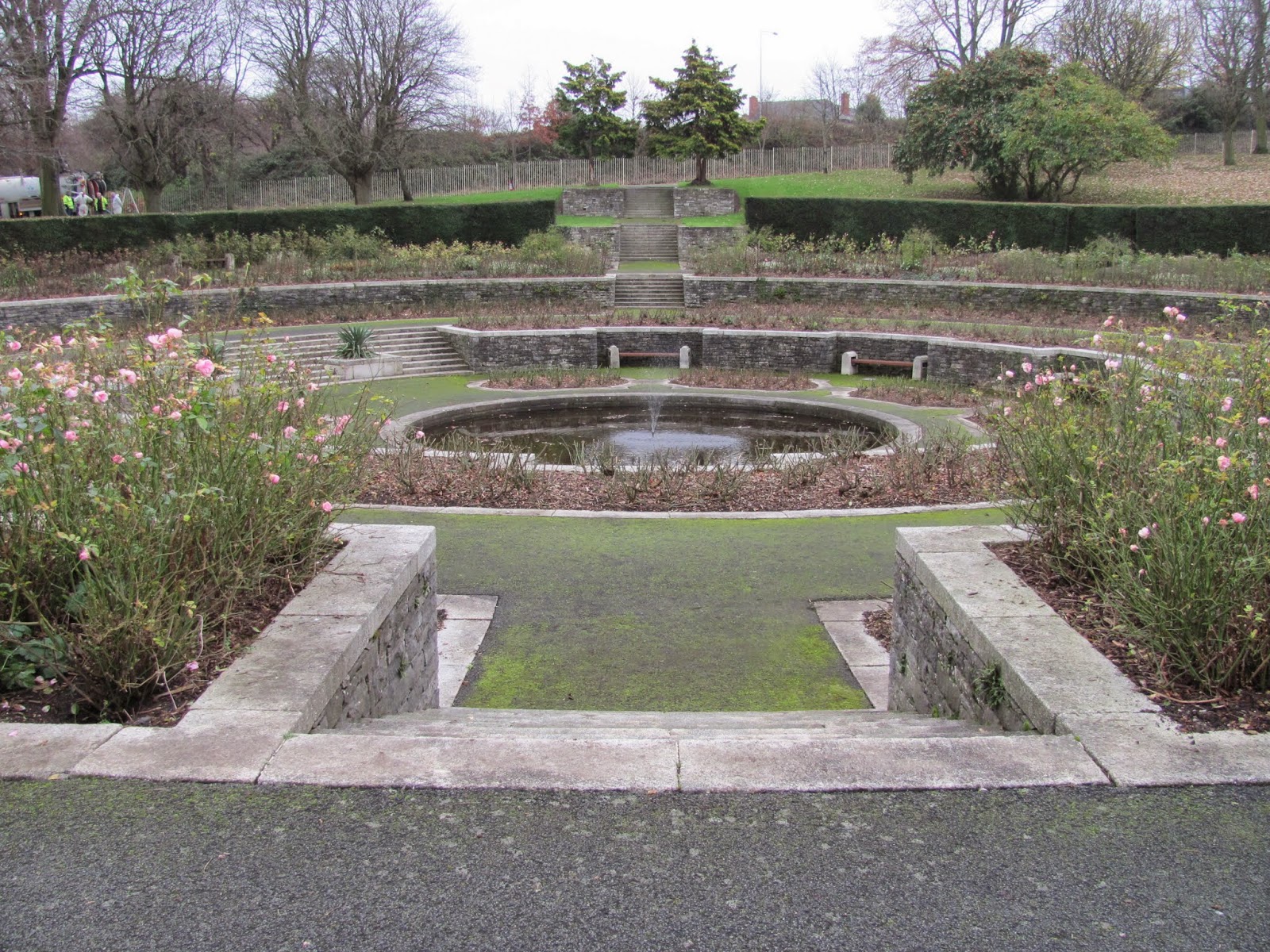You can read the article on Five Suitcases here, or you can check out the full text of the article below.
Beautiful Even When the Roses Aren't in Bloom
A somewhat hidden free treasure on Dublin's west side, the National War Memorial Gardens are a quiet, peaceful, and meaningful outdoor retreat from the busy city at any time of year.The National War Memorial Gardens are dedicated to the Irish-born soldiers who died in World War I from 1914-1918. Ireland had an official stance of neutrality in World War II, but nearly 50,000 Irish soldiers died serving the British crown (and protecting their Catholic brothers and sisters in the Low Countries of Belgium and Holland) in various World War I campaigns. It is a complex and dark time in Ireland's history.
The Gardens have two entrances, the easiest to find is on South Circular Road (R111) -- between Kilmainham Gaol and the River Liffey. This entrance is on the east side of the property and leads to the parking lot and the east pedestrian gate.
There is another (pedestrian-only) entrance on Con Colbert Road on the southern border of the park. This entrance is nearest the Rose Gardens and the other central monuments.
The River Liffey flows between the Gardens and Phoenix Park. Up here, beyond the tidal zone, the Liffey resembles the stream that it is for most of its surprisingly short length. The parking lot and picnic area allow unrestricted access to the shallow, cold waters.
If you look carefully, you might see the native brown trout that live in the upper stretches of the river -- or a swan aggressively begging for food.
 |
| The River Liffey from the Gardens |
Between the river and the Central Lawn, several straight avenues come together at a small Temple; the focal point of the northern edge of the Gardens proper.
 |
| War Memorial Gardens Temple |
Locally, the Gardens might be most famous for the twin circular Sunken Rose Gardens. On either edge of the Central Lawn, large, round rose gardens "sink" down to a central fountain. In summer, the concentric circles burst with the color and aroma of roses; but their tone is quite different -- but not inappropriate -- in winter when the blossoms have fallen.
The rose rings are lined with plantings of yew trees -- an ancient symbol of death and rebirth.
Between the two Rose Gardens, the large Central Lawn houses the defining features of the Gardens. The granite War Stone -- representing an altar -- sits at the very center, and is flanked by white stone obelisks and fountains -- representing candles. Massive War Stones like this stand at various World War I memorials around Europe.
The four corners of the Central Lawn are marked with small granite buildings, the Bookrooms. These four shrines contain the Books of Remembrance -- listing the names of all 49,400 Irish soldiers who died throughout Europe in World War I.
Gardens open Mon-Fri 08:00, Sat-Sun 10:00, closes at sunset.
Gardens Website
PDF Map and Guide
 |
| Rose Garden in Winter |
 |
| Rose Garden Looking to Central Lawn |
Between the two Rose Gardens, the large Central Lawn houses the defining features of the Gardens. The granite War Stone -- representing an altar -- sits at the very center, and is flanked by white stone obelisks and fountains -- representing candles. Massive War Stones like this stand at various World War I memorials around Europe.
 |
| The Granite War Stone |
 |
| Flanking Obelisk "Candle" |
Visiting the Gardens
A visit to the War Memorial Gardens can be a quick walkthrough tied to a visit to Kilmainham Gaol and Phoenix Park or a longer, more contemplative look at a dark twentieth-century memory for this small country. The picnic grounds on the bank of the river allow visitors to spread out on the grass or sit on a bench facing the river and the park. Neighborhood locals use this quiet green space for jogging, dog-walking, and afternoon and weekend strolls.Gardens open Mon-Fri 08:00, Sat-Sun 10:00, closes at sunset.
Gardens Website
PDF Map and Guide

No comments:
Post a Comment
Please leave a comment, we'd love to hear what you think! Comments are word verified to prevent SPAM.